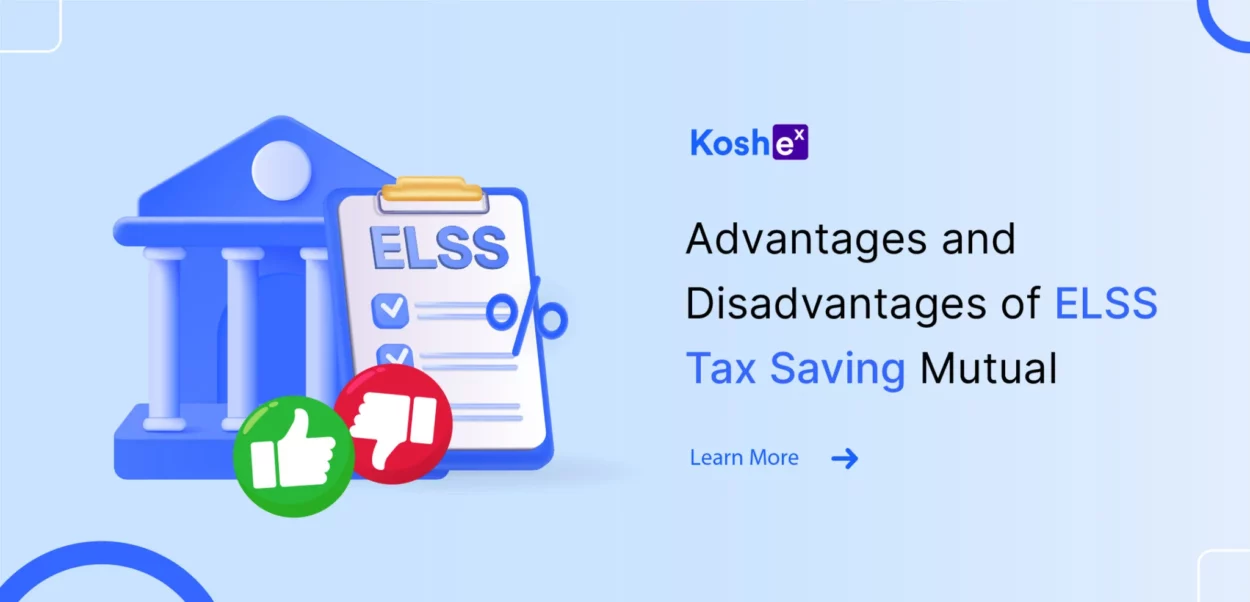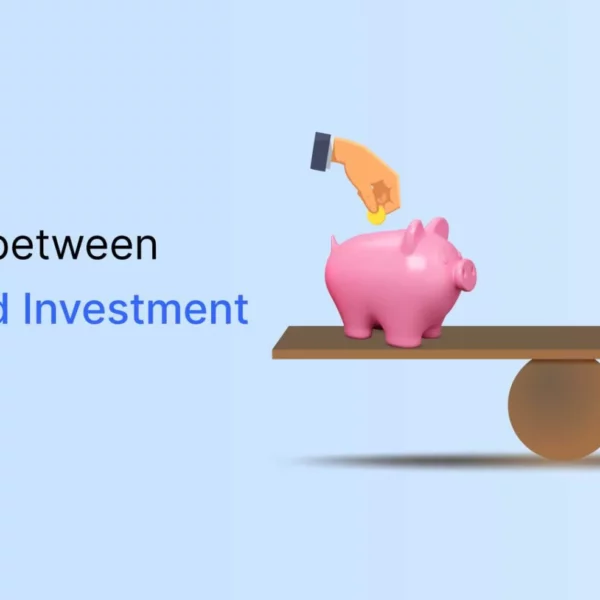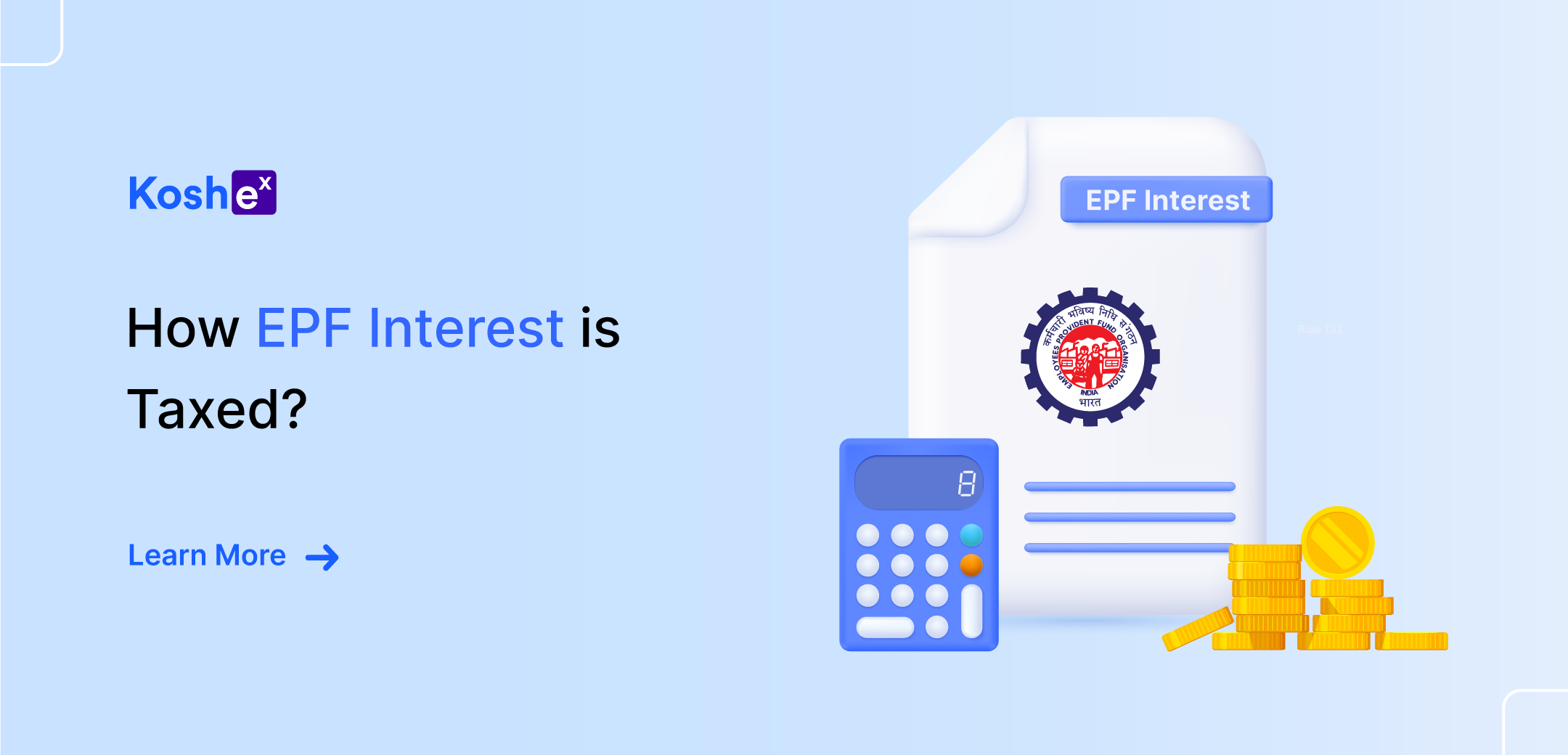More and more Indians are opting for ELSS funds as their go-to investment choice for saving taxes. Apart from helping you save taxes, they also help you grow your wealth.
In this article, we will talk about what ELSS funds are, how they work, their benefits, and what you should consider before investing in them.
ELSS (Equity Linked Savings Scheme) is loved by many because of several reasons. Out of all the tax-saving instruments available under Section 80C of the Income Tax Act, ELSS funds have the lowest lock-in period (i.e.) three years.
ELSS funds are also known to offer double-digit returns, making them an attractive tax-saving investment option for many investors.
If you are new to tax-saving instruments and different sections of the Income Tax Acts, we have written several articles that will help you understand the different types of instruments that are available to help you save taxes.
In this article, we will be talking about ELSS funds, and how they can be a great addition to your investment portfolio.
What Are ELSS Funds?
Equity Linked Savings Scheme (ELSS) is an equity mutual fund that invests a majority of its corpus into equity or equity-related instruments.
ELSS funds are also called tax-saving mutual funds since they offer tax exemption of up to ₹1,50,000 from your annual taxable income under Section 80C of the Income Tax Act.
They are an excellent tax-saving investment option for everyone, especially newbie investors. Apart from ELSS, Section 80C also offers tax deduction benefits to investments made in other instruments like Public Provident Fund, National Savings Certificate, etc.
One of the main reasons why ELSS is loved by many is because they have the lowest lock-in period of three years when compared to other tax-saving instruments.
A Public Provident Fund (PPF) has a 15-year lock-in period, and a tax-saving Fixed Deposit (FD) has a five-year lock-in period while the National Pension Scheme (NPS) has a lock-in period until retirement.
Once the lock-in period ends, you can redeem or switch the units.
Also, among the other tax-saving avenues, ELSS has the highest potential for wealth creation in the long term. ELSS provides options to invest across both growth and dividend options.
Investors should assess the fund’s track record and choose one that suits their risk tolerance and helps them achieve their financial goals.
How Do ELSS Funds Work?
As mentioned above, an ELSS mutual fund invests a majority of its corpus in equity-linked instruments such as stocks.
These stocks could be from several sectors and of different market capitalizations. The remaining corpus that is not invested in equities is invested in other fixed-income or money-market securities.
If the market value of the stocks in which the fund has invested rises, the investors will receive positive returns. On the other hand, if the value of assets declines, the investors will face loss.
How To Invest In ELSS Funds?
There are two investment modes through which an investor can invest in mutual fund schemes. They are
Lumpsum – You choose lump sum if you wish to invest one time in a mutual fund scheme. Usually, people choose this method when they receive a bonus, so they can put the money in a scheme as a one-time investment.
If you wish to know how much and how long you need to invest to achieve your goals, please check the Lumpsum Calculator, created by Koshex.
Systematic Investment Plan (SIP) – You choose SIP when you want to invest a fixed amount in a scheme at regular intervals. You can choose to invest ₹5000 every month or ₹10,000 every quarter. When the due date comes, your amount will be deducted automatically from your bank account and it will be used to purchase units of the mutual fund scheme.
If you wish to know how much you need to invest every month via SIP to achieve your goals, please check the SIP Calculator, created by Koshex.
What Are The Advantages Of Investing In ELSS Funds?
Thinking that tax-saving is the only advantage of investing in ELSS funds? Well, think again. Here is a list of benefits you get from investing in ELSS mutual funds.
Save Taxes
The first one is the most obvious benefit of investing in ELSS funds and that is, it helps you to save taxes. Equity-Linked Savings Schemes are the only equity funds eligible for tax deductions for investors. Under Section 80C of the Income Tax Act, you can avail of a tax deduction of up to ₹1.5 lakhs in a financial year.
Shortest Lock-In Period
ELSS funds come with a lock-in period of just three years. This is much lesser than the other tax-saving options under 80C, including Public Provident Fund, National Savings Certificate, Tax-Saving Fixed Deposits, etc.
Start Investing With Less Money
With ELSS, investors can start their tax-saving journey for as low as ₹100 via the SIP mode.
Higher Returns
Since ELSS funds have a link to the equity markets, they offer payouts that are higher than traditional tax-saving instruments. Statistics show that ELSS generates around 12% returns over 10 years on average. This is a huge jump over schemes like PPF, which offer around 7%.
No Upper Limit
You can invest any amount in ELSS funds, as there is no upper limit. Meanwhile, the minimum investable amount will differ across fund houses.
Long-Term Returns
Your investment in ELSS funds can be grown by not redeeming them after the stipulated lock-in time of three years. As these funds invest in equities, they can create considerable wealth over a long period of time.
Diversification
ELSS mutual funds invest a major portion of their funds in equity and equity-linked instruments and other securities, thus diversifying their portfolio. This diversification helps prevent big losses during highly volatile market conditions.
Beat The Inflation
ELSS mutual funds are the only tax-saving instrument with the potential to offer inflation-beating returns.
What Are The Disadvantages Of Investing In ELSS Funds?
There are a couple of factors that you should consider before investing in ELSS funds.
- Limited Tax Benefits
Tax benefits for a particular year are limited to only to the tune of ₹1.5 lakhs under Section 8C of the Income Tax Act.
Even if you have invested ₹5 lakhs for the particular financial year, you can only claim up to ₹1.5 lakhs for that financial year.
- Liquidity
As mentioned above, ELSS funds come with a three-year lock-in period, meaning that you cannot withdraw your investments from them before the end of three years.
If you require your funds in the immediate future, you can consider investing in liquid mutual funds or other debt mutual funds, which are suitable for short-term goals and have high liquidity.
- Risk
Since a majority of ELSS funds’ corpus is invested in equity or equity-linked instruments, it is important to understand that ELSS funds carry high risks.
They are suitable for investors with a high-risk tolerance and if you are someone who would wish to invest in low-risk tax-saving investment instruments, you can consider PPF, NSC, tax-saving FDs, and so on.
- Expense Ratio
The expense ratio is the amount of investment that goes into managing the funds. An investor should carefully consider the expense ratio as it can have a direct impact on the returns generated by the fund. If the expense ratio is low, the returns would be high, and vice versa.
In The End…
ELSS funds are an ideal option for investors who are open to taking high risks and want to stay invested for a long period.
Apart from saving taxes, you can also grow your wealth when you invest in ELSS funds. Since ELSS funds come with the shortest lock-in period, they are perfect for those who don’t want their money to be tied up for a long time (i.e.) 15 years.
We hope this article helped you understand all about ELSS mutual funds and how they can help you earn higher returns on your extra money.
It is important to learn how liquid mutual funds will benefit you and what factors you should consider before investing in them.
If you wish to learn more about other types of mutual funds, including ELSS funds, and other types of investment instruments, such as Fixed Deposits, Digital Gold, and Smart Deposits, head over to our Blogs section.
You can also check out our Calculators, where you can learn more about how much wealth you can accrue in certain years.
All geared up to start investing? Create an account with Koshex within just 60 seconds, without any paperwork. Apart from Mutual Funds, you can also invest in Smart Deposits, Digital Gold, Fixed Deposits, and more, through your Koshex Account.
You can also track your expenses, build a budget, invest in hyper-personalized investment recommendations, monitor your investments, stay on top of your savings goals, and more with Koshex.
We are truly built for every aspiring & experienced Indian investor. Sign up for free today.









Leave a Comment